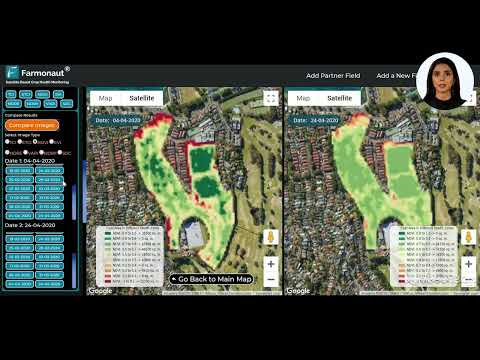California’s Sanctuary State: Navigating Federal Immigration Enforcement and Immigrant Rights in Mendocino County

“California’s sanctuary state laws protect an estimated 2.3 million undocumented immigrants from federal immigration enforcement.”
In recent years, the complex interplay between federal immigration enforcement and state-level sanctuary policies has become a focal point of national debate. As we delve into this intricate issue, we’ll explore the implications of these policies, particularly in Mendocino County, California. Our analysis will shed light on the challenges faced by immigrant communities, the role of local law enforcement, and the broader impact on the agricultural sector.
The Changing Landscape of Immigration Law in California
California, home to approximately 10.6 million immigrants, has long been at the forefront of immigrant rights advocacy. With an estimated 2 million undocumented residents, the state has taken significant steps to protect its immigrant population through sanctuary state laws. These laws, embodied in the California Values Act, have created a complex legal landscape that often conflicts with federal immigration policies.
The recent executive orders on immigration signed by President Donald Trump have further complicated this already intricate situation. Since taking office on January 20, 2025, Trump has issued ten executive orders aimed at strengthening border security and increasing deportations. These actions have sent shockwaves through immigrant communities across the nation, including those in Mendocino County.
Mendocino County: A Microcosm of California’s Immigration Challenges
Mendocino County, with its thriving agricultural sector, serves as a perfect case study for examining the impact of these conflicting policies. While the exact number of undocumented residents in the county is unclear, it’s estimated that a significant portion of its agricultural workforce consists of immigrant laborers, many of whom are undocumented.
Agricultural Workers and Immigration Status
The agricultural sector in California relies heavily on immigrant labor, with an estimated 50% of the workforce being undocumented. In Mendocino County, this translates to thousands of workers whose livelihoods are directly affected by changes in immigration policy. The uncertainty created by recent federal actions has led to increased anxiety among these workers, potentially impacting the county’s agricultural productivity.
As we consider the impact on agricultural workers, it’s worth noting the role of technology in modern farming. Platforms like Farmonaut offer innovative solutions for farm management, potentially helping farmers navigate these challenging times more efficiently. While not directly addressing immigration issues, such tools can contribute to overall farm productivity and sustainability.
The California Values Act: A Shield for Undocumented Residents
At the heart of California’s stance on immigration is the California Values Act, enacted in 2017 through Senate Bill 54. This landmark legislation effectively designates California as a sanctuary state, limiting cooperation between local law enforcement and federal immigration authorities.
Key Provisions of the California Values Act:
- Prohibits local law enforcement from collaborating with ICE on deportations
- Prevents local officers from detaining individuals solely for ICE to take action
- Restricts information sharing between local agencies and federal immigration authorities
- Protects sensitive locations such as schools, healthcare facilities, and courthouses from immigration enforcement activities
These provisions have created a buffer between undocumented residents and federal immigration enforcement efforts, providing a measure of security for immigrant communities in Mendocino County and throughout California.
Federal Immigration Enforcement vs. State Sanctuary Laws
The conflict between federal immigration policies and California’s sanctuary state laws has created a complex legal and operational environment. While the California Values Act limits local cooperation with ICE, federal law remains supreme, allowing ICE to continue deportation efforts regardless of state laws.
ICE Raids in California: A Growing Concern
One of the most contentious aspects of federal immigration enforcement has been the increase in ICE raids. President Trump’s executive orders have expanded the scope of these operations, permitting raids in previously protected “sanctuary” areas such as churches, schools, and healthcare facilities. This has raised significant concerns among immigrant communities and advocacy groups in Mendocino County and beyond.

“Mendocino County’s agricultural sector employs approximately 7,000 workers, many of whom are immigrants affected by recent policy changes.”
The threat of raids has created an atmosphere of fear and uncertainty, particularly in agricultural communities where many workers are undocumented. This fear can have far-reaching consequences, from decreased labor participation to disruptions in community life and local economies.
Local Law Enforcement and ICE: A Delicate Balance
In Mendocino County, as in other parts of California, local law enforcement agencies find themselves in a challenging position. They must balance their commitment to public safety with the requirements of state law and the expectations of the federal government.
Sheriff Matt Kendall of Mendocino County has stated that local law enforcement does not assist federal agents in deportation efforts. This stance aligns with the California Values Act and reflects the broader position of many California law enforcement agencies. However, it also highlights the potential for conflict between local and federal authorities.
The Role of Federal Warrants
While local law enforcement in Mendocino County generally does not cooperate with ICE, there are exceptions. If ICE presents a federal warrant signed by a judge, local authorities are obligated to comply. This nuance underscores the complex interplay between federal and state jurisdictions in immigration enforcement.
The Impact on Immigrant Communities
The ongoing tension between federal immigration enforcement and California’s sanctuary policies has had a profound impact on immigrant communities in Mendocino County. These effects extend beyond the immediate threat of deportation, influencing various aspects of daily life.
Economic Implications
The agricultural sector, a vital component of Mendocino County’s economy, relies heavily on immigrant labor. The fear of deportation and increased immigration enforcement can lead to labor shortages, potentially impacting crop yields and the overall economic health of the region.
Social and Community Impact
The climate of uncertainty has led to increased stress and anxiety within immigrant communities. This can manifest in various ways, including:
- Reduced participation in community events and activities
- Hesitancy to access essential services, including healthcare and education
- Strained relationships between immigrant communities and local authorities
These social impacts can have long-lasting effects on community cohesion and the overall well-being of Mendocino County’s residents.
Legal Resources for Immigrants in Mendocino County
In response to the challenges faced by immigrant communities, various organizations and legal resources have emerged to provide support and guidance. These resources play a crucial role in helping immigrants navigate the complex legal landscape and understand their rights.
Key Legal Resources:
- Immigration Legal Resource Center
- California Rural Legal Assistance Foundation
- Local immigration attorneys and pro bono legal services
- Community-based organizations offering legal clinics and workshops
These resources provide vital information on topics such as:
- Understanding and asserting legal rights during interactions with law enforcement
- Navigating the visa and green card application processes
- Addressing workplace rights and labor violations
- Accessing social services and healthcare without fear of deportation
By leveraging these resources, immigrants in Mendocino County can better protect their rights and navigate the challenges posed by changing immigration policies.
Comparative Analysis: Federal vs. California Immigration Policies
| Policy Area | Federal Policy | California Sanctuary State Policy | Impact on Mendocino County |
|---|---|---|---|
| Law Enforcement Cooperation | Requires local law enforcement to cooperate with ICE | Prohibits local law enforcement from assisting in federal immigration enforcement | Local police do not participate in ICE operations, potentially reducing fear in immigrant communities |
| Workplace Raids | Allows ICE to conduct workplace raids | Requires employers to notify employees before ICE inspections | Reduced surprise raids, but ongoing concern in agricultural sector |
| Deportation Procedures | Expanded criteria for deportation priorities | Limits information sharing that could lead to deportations | Fewer deportations initiated through local law enforcement contact |
| Access to Public Services | Restricts access for undocumented immigrants | Ensures access to public services regardless of immigration status | Improved access to healthcare and education for undocumented residents |
The Role of Technology in Modern Agriculture
While immigration policy continues to evolve, technological advancements are transforming the agricultural landscape. Innovative platforms like Farmonaut are providing farmers with powerful tools to optimize their operations, potentially mitigating some of the challenges posed by labor uncertainties.
Key Features of Agricultural Technology:
- Satellite-based crop monitoring
- AI-driven advisory systems
- Precision agriculture techniques
- Resource management tools
These technologies can help farmers in Mendocino County and beyond to improve efficiency and productivity, regardless of the ongoing immigration debates. While not a direct solution to immigration challenges, they represent an important aspect of the evolving agricultural sector.
For those interested in exploring these technologies, Farmonaut offers various options:
For developers interested in integrating agricultural data into their own applications, Farmonaut also offers an API with comprehensive documentation.
Community Support and Advocacy
In response to the challenges faced by immigrant communities, various grassroots organizations and advocacy groups have emerged in Mendocino County. These groups play a vital role in providing support, disseminating information, and advocating for immigrant rights.
Key Areas of Community Support:
- Legal clinics and “Know Your Rights” workshops
- Language assistance and translation services
- Mental health support and counseling
- Emergency response networks for ICE raids
- Advocacy for policy changes at local and state levels
These community-based efforts have been instrumental in helping immigrant residents navigate the complex legal landscape and maintain a sense of security despite ongoing challenges.
Looking Ahead: The Future of Immigration Policy in California
As we look to the future, the landscape of immigration policy in California, and particularly in Mendocino County, remains uncertain. The ongoing tension between federal enforcement efforts and state-level protections is likely to continue, with potential legal challenges and policy shifts on the horizon.
Key Factors to Watch:
- Potential federal legislation on comprehensive immigration reform
- Legal challenges to California’s sanctuary state laws
- Evolving enforcement priorities at the federal level
- Local and state-level policy innovations to protect immigrant communities
As these issues continue to evolve, it’s crucial for residents of Mendocino County, particularly those in immigrant communities, to stay informed and engaged. Understanding one’s rights, accessing available resources, and participating in community support networks will remain essential strategies for navigating this complex landscape.
Conclusion
The interplay between federal immigration enforcement and California’s sanctuary state laws creates a complex and often challenging environment for immigrant communities in Mendocino County. While the California Values Act provides significant protections, the threat of federal enforcement actions remains a source of anxiety for many undocumented residents.
As we’ve explored, this issue has far-reaching implications, affecting not only individual immigrants but also the broader community, including the vital agricultural sector. The role of local law enforcement, the availability of legal resources, and the strength of community support networks all play crucial roles in shaping the experiences of immigrant residents.
Moving forward, it will be essential for all stakeholders – from policymakers and law enforcement officials to community organizations and individual residents – to work together in navigating these challenges. By fostering understanding, promoting access to resources, and advocating for fair and humane policies, Mendocino County can strive to create a community that is welcoming and supportive of all its residents, regardless of immigration status.
FAQs
- What is a sanctuary state?
A sanctuary state is one that limits its cooperation with federal immigration enforcement efforts, often through laws that restrict local law enforcement from assisting in deportation activities. - Can ICE still operate in California despite its sanctuary state status?
Yes, ICE can still conduct operations in California. The sanctuary state law limits local cooperation but does not prevent federal agents from carrying out their duties. - What should I do if approached by ICE?
Remain calm, exercise your right to remain silent, and do not open the door unless they have a warrant signed by a judge. Contact an immigration attorney as soon as possible. - Are undocumented immigrants eligible for public services in California?
California provides access to many public services regardless of immigration status, including emergency medical care and K-12 education. - How can technology help farmers in Mendocino County?
Agricultural technology, such as satellite-based monitoring and AI advisory systems, can help farmers optimize their operations, potentially mitigating some challenges related to labor uncertainties.
Earn With Farmonaut: Affiliate Program
Earn 20% recurring commission with Farmonaut’s affiliate program by sharing your promo code and helping farmers save 10%. Onboard 10 Elite farmers monthly to earn a minimum of $148,000 annually—start now and grow your income!







